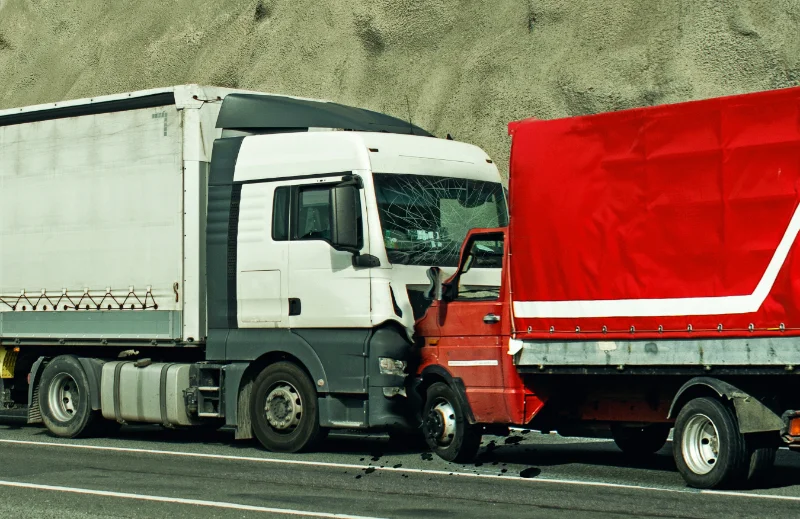According to statistics compiled by the Federal Motor Carrier Safety Administration (FMCSA) from 2009 to 2019, Alaska saw a rise in fatalities from accidents involving large trucks, as has almost every state. Though Alaska’s population of only about 735,000 people in a land mass equaling 20% of the lower 48 states in size may make the numbers seem small (9 fatalities in 2019), the study doesn’t detail the many others who were seriously injured in truck accidents.
The FMCSA study calls these motorized behemoths of the road “large trucks,” but other terms used to describe them include big rigs, semis, 18-wheelers, and tractor trailers. Call them what you will, these trucks can weigh up to 80,000 pounds in operational mode, while your average passenger vehicle weighs in at about 4,000, sometimes less. A collision with a large truck can be devastating due to the sheer size of the vehicle that strikes you.
Get Help After Your Accident
Get in Touch with usTrust a Skilled Attorney
Having been injured in a truck accident, or having lost a loved one, can be a time of great stress and emotion, including the pain of your injuries. While you recover at home, let us examine the details of your accident to determine liability, and then guide you through the process of recovering the compensation you deserve.
Filing a Personal Injury or
Wrongful Death Claim
The first step is normally to file a claim with your insurer or the other driver’s insurance company, but if there are multiple parties at fault, it gets more complicated. Then you’re no doubt looking at filing a personal injury lawsuit or even several, which you also may end up doing if you can’t get the results you deserve from the truck driver’s insurance policy.
The statute of limitations for adults filing a personal injury lawsuit in Alaska is two years from the date of the accident. If the victim is a minor at the time of the collision then they have two years from their 18th birthday.
If you’ve lost a loved one due to a truck accident, the statute of limitations is also two years from the date of your loved one’s death. The standard for bringing such a lawsuit is that, had the person survived, they would have been eligible to file a personal injury lawsuit.
In some states, spouses, parents, and other relatives can file wrongful death lawsuits, but Alaska requires that the personal representative (or “executor”) of the deceased person’s estate must file on behalf of the deceased. A personal representative is generally named in a person’s last will and testament. If there is no will, then the court will appoint a personal representative, generally from among family members.

